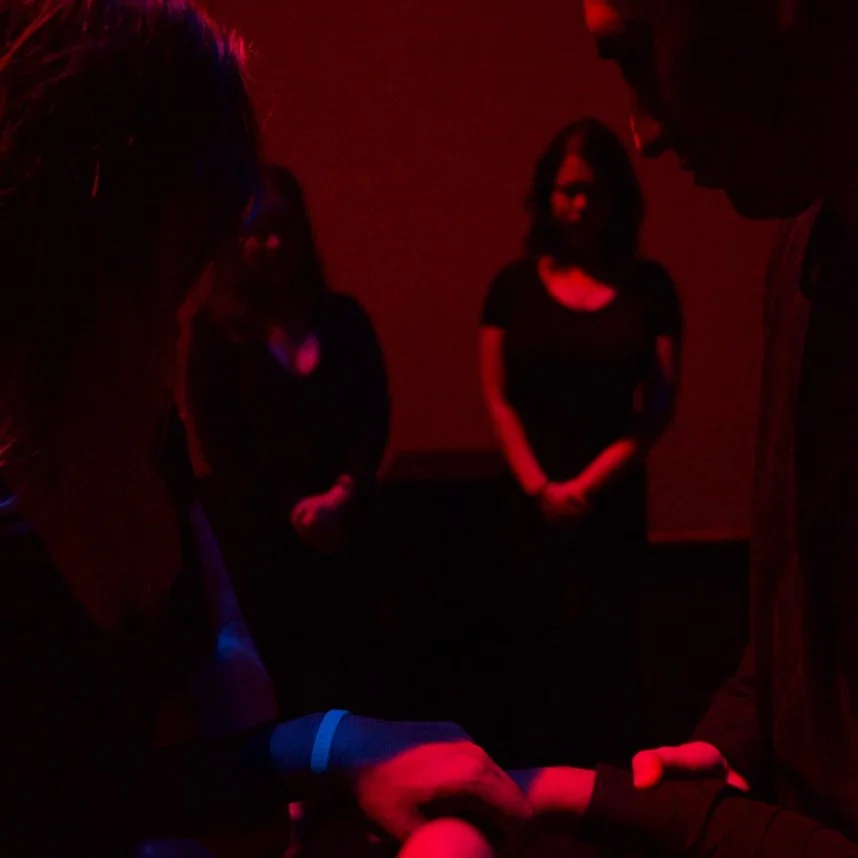Our History Shapes Our Future: Acknowledging Harm in Attempt to Heal.
Acknowledging our Origins:
We began by researching the Aurora Neighborhood, and speaking with folx who lived here before the campus was built. We heard their stories, and walked the campus with them as they pointed to the spaces which, if the pavement were lifted, would reveal the ground which holds the memories of their childhoods:
This parking lot was once a church where the community gathered when facing massive floods.
The King Center, where the theatre now stands, was once an elementary school—perhaps the only in the state featuring an entire faculty of native Spanish speakers
This office building was erected over the bulldozed low-income housing area.
This building, and old blue house adapted to contain office space, was once my childhood home.
Tasked with Creating a 100th Anniversary Celebration…
…we gathered the stories shared with us by those who had lived here before the campus was established. And we researched the legal battle which raged between the state of Colorado and the Aurarian community. We read the agreement which was finally struck between the two.
These families were promised that their descendants would have scholarships guaranteed: in exchange for their homes, their children and grandchildren would have access to college educations.
Our research uncovered the ugly truth, often repeated across the country and throughout US history—the disempowered community was denied the full knowledge of the terms of their agreement, such that the institutions and systems in power would not be legally upheld to the ethical actions they had agreed upon.
In this case, the Aurarians were not told that their families would need to secure documentation of their displacement—and maintain this documentation over generations—in order to claim the promised scholarships. Therefore, several generations have been denied the promised educational access and support.
In devising the 50th anniversary celebration performance, we dedicated ourselves to acknowledging the real history of our institution, rather than a glorifying narrative that erases the colonizing forces and capitalism inherent in higher education.
We partnered with Tony Garcia—a musician and Aurarian whose family lost their home in the bargain with the state to establish our campus, as well as an alumni of the Community College of Denver—and artists from Denver’s Su Teatro.
The students in my class, based upon these interviews and in collaboration with Tony’s musical and cultural consultation, devised Cinco Decimas, a performance piece based on the five decades since the Aurarians were displaced and the Auraria campus was first established. Each piece was written in the decima format—a metered poetic form native to Latin America—and was performed in a promenade format at historically relevant locations across campus. A diverse cast of current students partnered with the Aurarians to breathe life into their stories through performance, so that they would not be forgotten as the Community College of Denver celebrated its 50th anniversary.
The full 50th anniversary included the devised performances of Cinco Decimas, as well as a choral adaptation of some of the Aurarians’ stories not featured within the devised performance and a run of Just Like Us, the play by Karen Zacarías which features the stories of undocumented students in Denver fighting to gain the same educational access as their documented
Can I say that these artistic efforts changed anything?
It’s too early to tell. But at the Board of Trustees gala, there was a lot of talk about seeking out and recruiting the descendants of Aurarians, and following through on the promises made 50 years ago.
We can’t make change to overcome the issues we don’t acknowledge.


